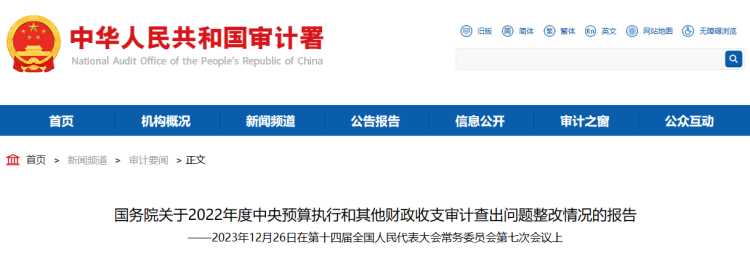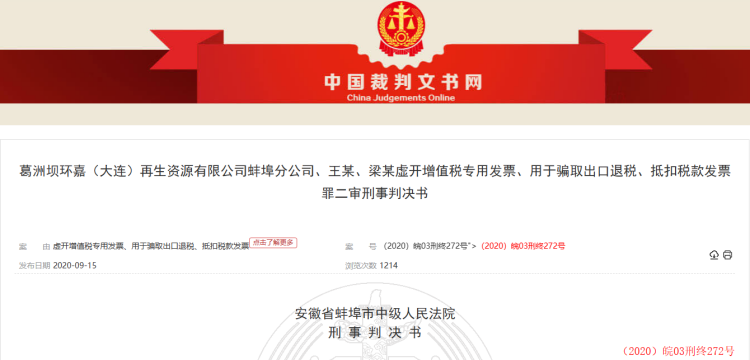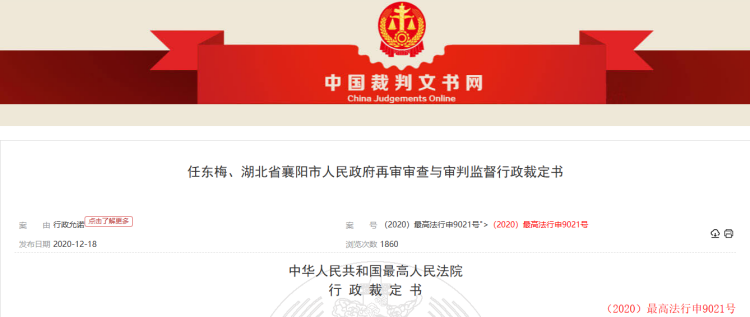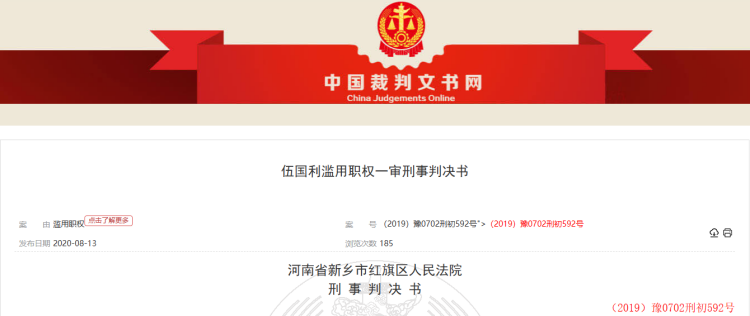2024 National Audit Work Conference: strictly audit the “tax depression” and “illegal tax rebates” chaos in investment attracting
I. National Audit Office: seriously audit and deal with the chaos of "mini-policies" by local governments to create tax depression and illegal tax rebates
(I) Investigation: In 2022, 55 regions illegally returned 22.5 billion yuan of tax funds

On June 26, 2023, Hou Kai, Chief auditor of the National Audit Office, was entrusted by State Council to deliver “Audit Report of The State Council on the Implementation of the Central Budget and Other Fiscal Revenues and Expenditures in 2022” to the 3rd session of the Standing Committee of the 14th NPC. According to the report, the audit department focused on the fiscal revenue and expenditure management of 54 regions in 18 provinces, 36 cities and counties in 2022, and extended the scope of the common problems to other regions, and found that 55 regions had directly or indirectly returned 22.508 billion yuan of taxes or land leasing fees illegally.
(II) Rectification: By 2023, 55 regions will clean up and abolish illegal tax rebates, and standardize investment attraction

On December 26, 2023, Hou Kai, Chief auditor of the National Audit Office, was entrusted by State Council to the 7th session of the Standing Committee of the 14th NPC and delivered “State Council Report on the Rectification of Problems Found in the Audit of the Implementation of the Central Budget and Other Fiscal Revenues and Expenditures in 2022”. In response to the problem of illegally returning fiscal revenue, 55 regions have abolished illegal tax rebates and regulated investment promotion, according to the report.
(III) Outlook: In 2024, the problem of Tax depression will be exposed, and illegal tax refunds will be severely investigated and punished

On January 11, 2024, the National Audit Work Conference was held in Beijing, at which 6 aspects of audit work were proposed, the second of which includes: Some local governments have introduced illegal "mini-policies" and formed "Tax depression" in attracting investment. The National Audit Office should seriously investigate and deal with illegal tax returns, put forward targeted and operational suggestions, carry out audits of tax collection and administration, and keep a close eye on precious fiscal funds.
II. Tax depression and tax rebate cases disclosed in recent years
(I) Renewable resource enterprises obtained financial refunds and then issued VAT invoices and were judged to have issued false invoices

Bengbu Intermediate People's Court of Anhui Province [(2020) Wan 03 Xing Zhong No. 272] criminal judgement disclosure: On November 25, 2016, Gezhouba Huanjia Dalian Company and Huaiyuan County People's Government signed the "Project Agreement", agreed to establish Gezhouba Huanjia Bengbu branch, settled in Huaiyuan, operating waste materials recycling. At the same time, it is agreed that if Gezhouba Huanjia Bengbu Branch pays more than 10 million yuan of income tax annually, Huaiyuan County People's Government will refund 48% of the actual amount of VAT paid and 100% of additional taxes. Gezhouba Huanjia Bengbu Branch relies on this policy to issue special VAT invoice to downstream enterprises. On September 2, 2020, Bengbu Intermediate People's Court of Anhui Province sentenced Gezhouba Huanjia Bengbu Branch to the crime of falsely make out special VAT invoices and fined it 500,000 yuan; Two people directly responsible for the crime of falsely make out special VAT invoices were sentenced to 11 years in prison.
(II) The government's promise of tax incentives is illegal

The Supreme People's Court [(2020) Zuigaofa Xing Sheng No.9021] Administrative judgment disclosed that the Xiangyang Municipal Government has made relevant meeting minutes, and it is clear that 39.5% of the actual individual income tax will be given to individual investors who reduce their holdings of restricted shares and pay taxes in Xiangyang City. The government has paid 4.93 million yuan and still owes 12.21 million yuan to Ren Dongmei, who reduced her local holdings of restricted shares in listed companies and demanded payment of incentives. Ms. Ren has sued the people's government of Xiangyang, Hubei province, seeking the rest of the reward. In this case, the court of first and second instance did not support the claim. On August 31, 2020, the Supreme People's Court determined that the administrative promise made by Xiangyang Municipal government was illegal and rejected Ren Dongmei's application for retrial.
(III) A financial official was sentenced for illegally granting tax incentives

Xingxian Hongqi People's Court [(2019)Yu 0702 Xing Chu No.592] criminal judgement discloses: On June 11, 2012, the People's Government of Yanjin County made a tax reward notice, and the finance at the same level will reward 40%-50% of the local retained part of the tax paid by the trade enterprises that pay taxes in Yanjin County. From June 2012 to August 2016, the defendant Wu Guoli, during the period of serving as deputy director and director of the Finance Office of Sizhai Township, Yanjin County, issued reward funds of 3.9 million yuan beyond the scope and proportion. On July 4, 2016, Yanjin County Finance Bureau issued a Notice on Strictly Prohibiting Tax rebate, and Wu Guoli continued to issue tax incentive funds of 700,000 yuan after receiving the notice. On December 19, 2019, the Hongqi District People's Court of Xinxiang City ruled that the defendant Wu Guoli was guilty of abuse of power, but was exempted from criminal punishment.
III. In 2024, four types of business models relying on fiscal and tax refunds will be severely challenged
(I) The large-account attribution model of the renewable resources industry may be negated
In 2008, the Ministry of Finance, State Administration of Taxation issued the "Notice on Value-added Tax Policy on Renewable Resources" (Cai Shui [2008] No. 157) canceled the tax exemption policy and deduction policy of renewable resources recycling enterprises, the first invoice problem of the industry reappeared, renewable resources recycling enterprises' tax burden surged, and the problem of invoices of enterprises using waste was highlighted again. Under this tax predicament, some local governments, in order to encourage the development of the renewable resources industry, have formulated financial rebate policies covering VAT, enterprise income tax and other taxes in the parks, and most of the recycling enterprises have chosen to land in such parks to build a "retailer--recycling enterprise". Most of the recycling enterprises choose to locate in such parks, establishing the model of "retail households - recycling enterprises - recycling enterprises (enjoying financial rebates)-waste-using enterprises". Among them, the first link recycling enterprises apply the simple levy policy and issue 3% VAT invoices to the outside world, and the second link recycling enterprises enjoy the financial rebate, in which the local government returns the actual VAT and enterprise income tax paid by the local government to the enterprises in a certain proportion, so that the recycling enterprises can reduce the business tax burden, and issue 13% special invoices to the waste-using enterprises with the invoices of the 3% tax rate.
In recent years, the regulation of financial rebates has been tightened, and the Announcement on Improving the VAT Policy on Comprehensive Utilization of Resources has made it clear that the behavior of financial rebates should be strictly regulated. Because the renewable resources business chain was established to a large extent on the second link of the recycling enterprise financial rebate policy, and the policy is directly linked to the tax, with the Audit Commission to further strengthen the "tax puddle" and illegal tax rebate supervision, relying on the financial rebate mode of operation of renewable resources enterprises will be a greater risk of the application of the policy. If the financial rebate policy granted by the local government is canceled, the renewable resources recycling enterprises will face the problem of bearing the full amount of VAT output tax burden, and the related business will be difficult to continue, or even face the crisis of closure and bankruptcy.
(II) The risk of lifting or invalidating the financial return agreement linked to tax revenue for investment promotion industrial parks
In order to encourage the economic development of specific industries and to realize the scale effect of industrial agglomeration, some local governments have set up industrial parks and attracted enterprises to settle in the parks by means of financial support policies such as financial rebates and approved levies. Such financial support policies are often linked to tax revenue, such as the annual payment of value-added tax above a certain amount of enterprises, the local retention of their tax payments in accordance with a certain percentage of the return. Some local governments have established cooperative relationships with consulting management companies and other platform enterprises, which undertake the task of investment promotion and utilize the customer resources of the platform enterprises to attract enterprises to settle in the industrial park. The platform enterprises usually provide services such as receipt of tickets, invoicing, bookkeeping, tax reporting and payment, and assist the enterprises in implementing various financial support policies.
Against the background of the Audit Commission's serious investigation of "tax pits" and irregular tax rebates, both the financial rebate agreements signed directly between the enterprises and the local government and the agreements signed with the investment platform enterprises in the park are facing the risk of being canceled due to the lack of legal basis and other issues. In addition, even if a taxpayer has obtained financial incentives under a financial rebate agreement, the agreement may be recognized as invalid or revoked due to violation of the provisions of the Tax Collection and Management Law, triggering the risk of refunding the financial incentives.
(III) The business of online freight platform will not be sustainable
In the business model of the online freight transportation platform. The online freight platform, as a carrier, accepts the entrustment of the consignor, provides transportation services for it and issues special VAT invoices, and then entrusts the business to the actual carrier. The actual carrier is generally the individual driver on the platform. Therefore, online freight platforms are faced with the problems of VAT input tax and enterprise income tax at the beginning of operation. To this end, many industrial parks, in order to encourage the development of online freight platforms, have issued policies and regulations on the return of income tax and value-added tax. Once the financial awards and subsidies granted by the local government are cancelled, the online freight platform will face the problem of bearing the VAT tax and income tax in full, and cannot continue to carry out business, or even face the situation of shutdown or bankruptcy.
(IV) The business scope of online flexible employment platforms will be seriously contracted
At present, the business model of flexible employment platform is mainly that: flexible employment person register as natural person members on the platform to provide labor and services for enterprise members on the platform, and the platform enterprises issue special VAT invoices in their own name to enterprise members who receiving labor and services. Due to the lack of input invoices on flexible employment platform, the above business is closely related to the fiscal and tax policies implemented by local policies. In the policies issued by some local government parks, the taxes paid by enterprises to the provincial, city and county levels are integrated into incentive funds for financial incentives. If the relevant policies are cancelled, the platform enterprises have to bear all the output tax of the special VAT invoices issued by the outside world, which is a heavy tax burden. It can be said that the flexible employment platform can only carry out the business of issuing general VAT invoice, or entrusted tax-collection. So the business scope is narrowed, and the business model is in urgent need of adjustment.
IV. Tax compliance path for government, platforms and enterprises to attract investment in 2024
In the process of local investment attraction, local governments usually choose to sign agreements with a “investment attraction platform enterprises”, and the platform enterprises will establish industrial parks, sign cooperation agreements with investment enterprises, and be responsible for specific matters such as park management and investment enterprises settling in. The three types of entities, the government, platform and investment enterprises, should prudently pay attention to their own risks and do a good job in tax compliance for investment promotion.
In the process of establishing industrial parks and determining investment projects, local governments should make strategic planning for industrial parks, implement list management of investment projects, and ensure the legitimacy and compliance of investment projects introduced. In the process of investment negotiation, specific measures such as industrial support policies, preferential tax policies, and financial incentive policies should be fully demonstrated to ensure that investment promotion work complies with legal provisions, and to avoid administrative liability risks and even criminal liability risks such as abuse of power and dereliction of duty. In the process of investment promotion, attention should be paid to the introduction of high-quality investment enterprises, advanced technology, high-end management and talents to promote the sustainable development of industrial parks.
When signing a cooperation agreement with the government, investment attraction platform enterprises should pay full attention to the specific content of the agreement, review the legality and compliance of the specific provisions of the cooperation agreement, take the initiative to prevent and deal with the payment risks such as government default and government violation in advance, do not believe in authority, and sign the agreement cautiously. In the process of park management, investment should be recommended, and sufficient tax investigation should be conducted on the investment enterprises to ensure that the business of the investment enterprises is legal and compliant. Platform enterprises themselves need to improve business processes and financial and tax management, and prevent illegal risks such as employee fraud, customer fraud, reward fraud, and false invoicing.
The investment enterprises settled in the industrial park should choose the industrial park with high government reputation and strong preferential power, and carry out special tax planning for investment and financing projects. The investment enterprise shall review the cooperation agreement signed with the platform enterprise, review the legality of preferential fiscal and tax policies, analyze and evaluate the feasibility of fiscal and tax policies and payment risks. Investment enterprises can also hire professional tax professionals to participate in investment and financing negotiations and decision-making meetings, publish professional financial and tax opinions and suggestions, and strive for the maximum degree of preferential treatment for enterprises within the legal framework. At the same time, investment enterprises need to ensure the authenticity of their own business, do a good job in tax compliance, and avoid the risk of false making out special VAT invoices and tax evasion.





